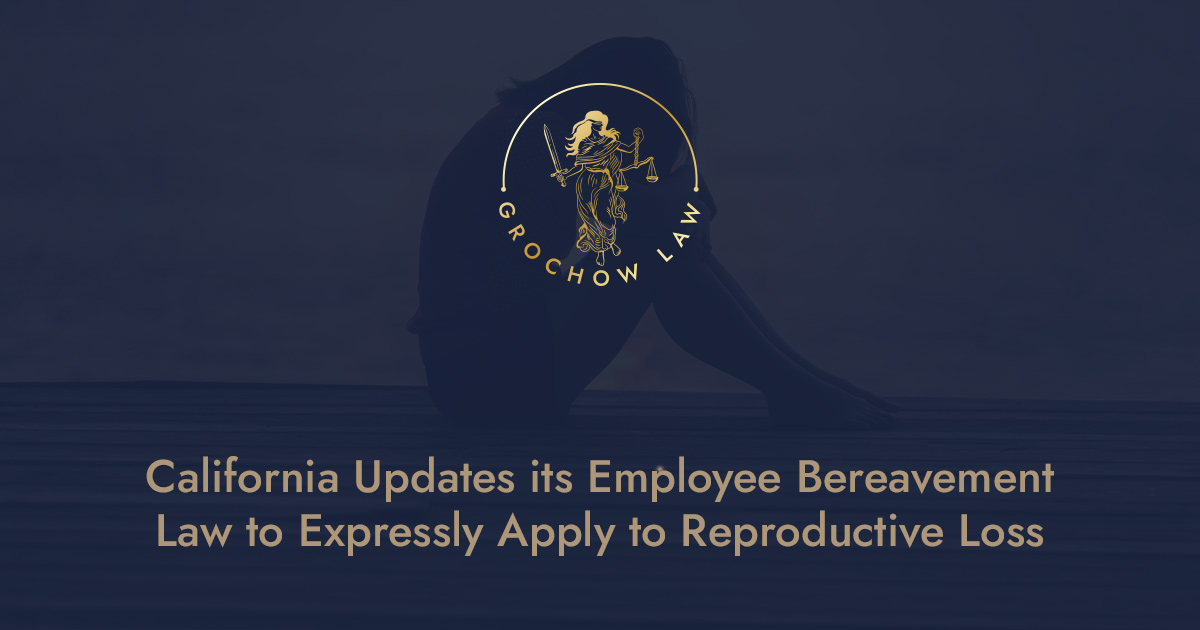More than one in four pregnancies result in a miscarriage and experiencing a miscarriage may take a considerable physical and mental toll on a person. In most instances, the need for bereavement to handle that loss is undeniable. Existing law requires employers to provide bereavement leave upon the death of an employee’s family member. Senate Bill 848 makes it unlawful for an employer to refuse to grant an eligible employee’s request to take up to five days of unpaid protected leave following a “reproductive loss event.” The law defines “reproductive loss event” as “the day or, for a multiple-day event, the final day of a failed adoption, failed surrogacy, miscarriage, stillbirth, or an unsuccessful assisted reproduction.” The law also limits the amount of reproductive loss leave to a maximum of 20 days within a 12-month period. This law applies to employers with five or more employees and to employees who have worked at least 30 days. Also, there is no requirement that an employee provide documentation in connection with requesting loss leave.
This post is an advertisement. Any comments provided do not create an attorney-client relationship.

